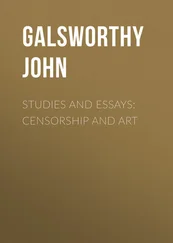Mina Loy - Stories and Essays of Mina Loy
Здесь есть возможность читать онлайн «Mina Loy - Stories and Essays of Mina Loy» весь текст электронной книги совершенно бесплатно (целиком полную версию без сокращений). В некоторых случаях можно слушать аудио, скачать через торрент в формате fb2 и присутствует краткое содержание. Год выпуска: 2011, Издательство: Dalkey Archive Press, Жанр: Современная проза, на английском языке. Описание произведения, (предисловие) а так же отзывы посетителей доступны на портале библиотеки ЛибКат.
- Название:Stories and Essays of Mina Loy
- Автор:
- Издательство:Dalkey Archive Press
- Жанр:
- Год:2011
- ISBN:нет данных
- Рейтинг книги:3 / 5. Голосов: 1
-
Избранное:Добавить в избранное
- Отзывы:
-
Ваша оценка:
- 60
- 1
- 2
- 3
- 4
- 5
Stories and Essays of Mina Loy: краткое содержание, описание и аннотация
Предлагаем к чтению аннотацию, описание, краткое содержание или предисловие (зависит от того, что написал сам автор книги «Stories and Essays of Mina Loy»). Если вы не нашли необходимую информацию о книге — напишите в комментариях, мы постараемся отыскать её.
Stories and Essays of Mina Loy
Stories and Essays of Mina Loy — читать онлайн бесплатно полную книгу (весь текст) целиком
Ниже представлен текст книги, разбитый по страницам. Система сохранения места последней прочитанной страницы, позволяет с удобством читать онлайн бесплатно книгу «Stories and Essays of Mina Loy», без необходимости каждый раз заново искать на чём Вы остановились. Поставьте закладку, и сможете в любой момент перейти на страницу, на которой закончили чтение.
Интервал:
Закладка:
“intriguing comparison”—“intriguing” is unclear— ed .
Tears in Loy’s manuscripts occur on occasion, either due to holes or wear; these disruptions are observed with: [ torn page ]. Only where absolutely necessary, and with the joint interests of foregrounding Loy’s intentions and readability as fully as possible, have I added or removed question marks, brackets, full stops, quotation marks, colons, and commas. In some cases, Loy’s use of quotation marks leaves the speaker ambiguous, and I have let this ambiguity stand. Loy’s erratic applications of double and single quotations — often within the same piece — have been standardised. Unless otherwise stated, all of the structural divisions or sections within Loy’s narratives emulate the manuscripts; whenever possible, the punctuation Loy uses to demarcate these breaks has been replicated.
Each of the editorial summaries indicates where the manuscript of the work is located. Excepting “The Pamperers,” all material comes from the Beinecke Rare Book and Manuscript Library at Yale, and the specific location in that library is signalled as follows: (6:175). The first number represents the particular box in Loy’s papers; the number following the colon refers to the folder within that box. Additionally, my editorial notes offer information about the state of the manuscript in question, occasional commentary on Loy’s more obscure references, useful critical contemplations of the piece, and any extant indications of the date of composition. Because so many of these dates remain speculative, the works of Stories and Essays of Mina Loy have been arranged by genre, and then again by alphabetical order, rather than chronologically.
ACKNOWLEDGMENTS
Firstly, I would like to thank Loy’s editor Roger Conover for permission to undertake this project. Without research grants from Queens’ College, Cambridge (specifically, The Weil Fund) and the University of Sussex, this book would not have been possible. The longer French translations — namely the entirety of “Gertrude Stein” and the correspondence in “Pazzarella”—were kindly provided by Martin Crowley, a Senior Lecturer in French at the University of Cambridge. Finally, I’d like to extend my appreciation to the dedicated and attentive staff at the Beinecke Rare Book and Manuscript Library at Yale University.
SARA CRANGLE, 2011
ABBREVIATIONS
Last LB
Loy, Mina. The Last Lunar Baedeker. ed. Roger Conover. Highland, NC: Jargon
Society, 1982.
Lost LB
Loy, Mina. The Lost Lunar Baedeker
Poems of Mina Loy . ed. Roger Conover.
NY: Farrar, Straus and Giroux, 1996.
BM
Burke, Carolyn. Becoming Modern: The
Life of Mina Loy. New York: Farrar,
Straus and Giroux, 1996.
ML: W & P
Mina Loy: Woman and Poet . ed. Maeera
Shreiber and Keith Tuma. Orono, Maine:
The National Poetry Foundation, 1998.
Salt
Companion
The Salt Companion to Mina Loy . ed.
Rachel Potter and Suzanne Hobson.
London: Salt Publishing, 2010.
STORIES
THE AGONY OF THE PARTITION
I.
In this old apartment, spacious rooms had been sliced to cubicles where the staccato chatter of the inmates, relayed like tom-tom messages, mingled with the crash of irreconcilable radios. For the moment it was so quiet I thought to be alone in the place. The unlifting evening of back rooms in crowded areas deepened. The page I wrote upon become hazy; resting awhile, I looked up at my bit of ceiling. The moulding, like a monorail into the unknown, streaked through a false wall into the visibility of other lodgings.
Above the bolster I leaned against, my idle head came into contact with the partition. Flimsy to vibrancy, it had hardly the resistance of a solid, and as I lolled on the divan in the precocious dusk, behind my shoulders the vibrancy of that shallow plane seemed slowly to concentrate, to rhythmically accentuate, until in my drowsiness it was as if the partition were breathing. A breath that, as it rose and fell with mine, filled me with unaccountable anxiety. I was drawing-in dread. I was made heavy with responsibility; and soon, under those feeble winds I could feel a stranger’s heart beat on my compassion. Its convoy of breath heaved through the partition as through a second breast. Varied, at intervals, to a râle from a chamber of torture.
For some days this percussion of inattributable emotion, my only company, transmitted its load of sorrow to some receiver within me extraneous to sense, which Mrs. Nome later, when we became acquainted, decoded.
It was like assisting at the presentation, without action, of a play whose protagonists projected onto the stage only an emotional abstract of the plot; a suit at law without evidence of any claiming. I might have been reading a tragedy, describing in phraseless parentheses, episodes undefined. Sometimes in its immeasurable alteration, it seemed to accord me the perfume of a rose, posthumously, or to poison me without a means. And always after a rarer agony, it would be as if a sugar of the heavens poured. The partition functioned as a vast Ouija-board without letter or number printed upon it.
I had no key to its communication, a contact so tenuous it is no wonder I did not realise at once that someone in the next room had chosen the spot corresponding to mine, to lean against.
When first I caught a glimpse of Mrs. Nome it was to see her vanishing — — into a dark recess that obscured her door. A glimpse so brief it was not before she had passed I attributed her amorphous shape to her burden of ungainly packages. I hardly registered the passing of a taller figure ahead of her.—
Having so much to hold she fumbled at the lock, a glimmer of light striking the lower muscle of her jaw. At once a voice from the shadows hissed at her, “Insane old hag; it takes you a week to unlock a door.” In the wake of its murderous inflection, out darted a tense hand. Cruel as a claw it dug deep into that illumined muscle, and giving it a vicious twist did its best to wrench it off. Half the parcels fell to the floor with a moan. The door opened and closed.
I returned to my cubicle. The false wall resounded with arpeggios of curses and shrieked bitches. A nerve-wracking invective, yet it seemed to issue from no heart-felt conviction; rather, as if a self-trained robot, glib with practice, were testing how great a tonal strain its metal lungs, its wire vocal-chords could stand. Or a child’s bravado had run amok into adulthood, before an amplified converse. After dishing out a few platitudes from a daily broadcast, she reflected gently, “. . for if we fail to reap to the full Unity’s advantages it is because we do not get up early enough in the morning.”
Without ado, the landlady’s daughter seized a heavy iron deep-fryer and flung it at the philosopher standing almost beneath her. It missed the head of Mrs. Nome which, all I could tell of her appearance, was covered with wispy hair the colour of faded carrot.
A clatter of iron, a hop off the ladder, the girl’s yells for mother to protect her. I stayed where I was. The landlady with her prowling gait of a limp orangutan, approached.
As she learned — of the brutal insults heaped by her lodger on a girl she despised for her kinship with one who rented out rooms — her critical sneers, her undue familiarity — she seemed to grow taller.
“And her foul language. Do you allow this woman to treat me like a servant?”
“This is most serious. .” the landlady pondered on the back of Mrs. Nome, which rigid with astonishment did not stir.
Читать дальшеИнтервал:
Закладка:
Похожие книги на «Stories and Essays of Mina Loy»
Представляем Вашему вниманию похожие книги на «Stories and Essays of Mina Loy» списком для выбора. Мы отобрали схожую по названию и смыслу литературу в надежде предоставить читателям больше вариантов отыскать новые, интересные, ещё непрочитанные произведения.
Обсуждение, отзывы о книге «Stories and Essays of Mina Loy» и просто собственные мнения читателей. Оставьте ваши комментарии, напишите, что Вы думаете о произведении, его смысле или главных героях. Укажите что конкретно понравилось, а что нет, и почему Вы так считаете.












